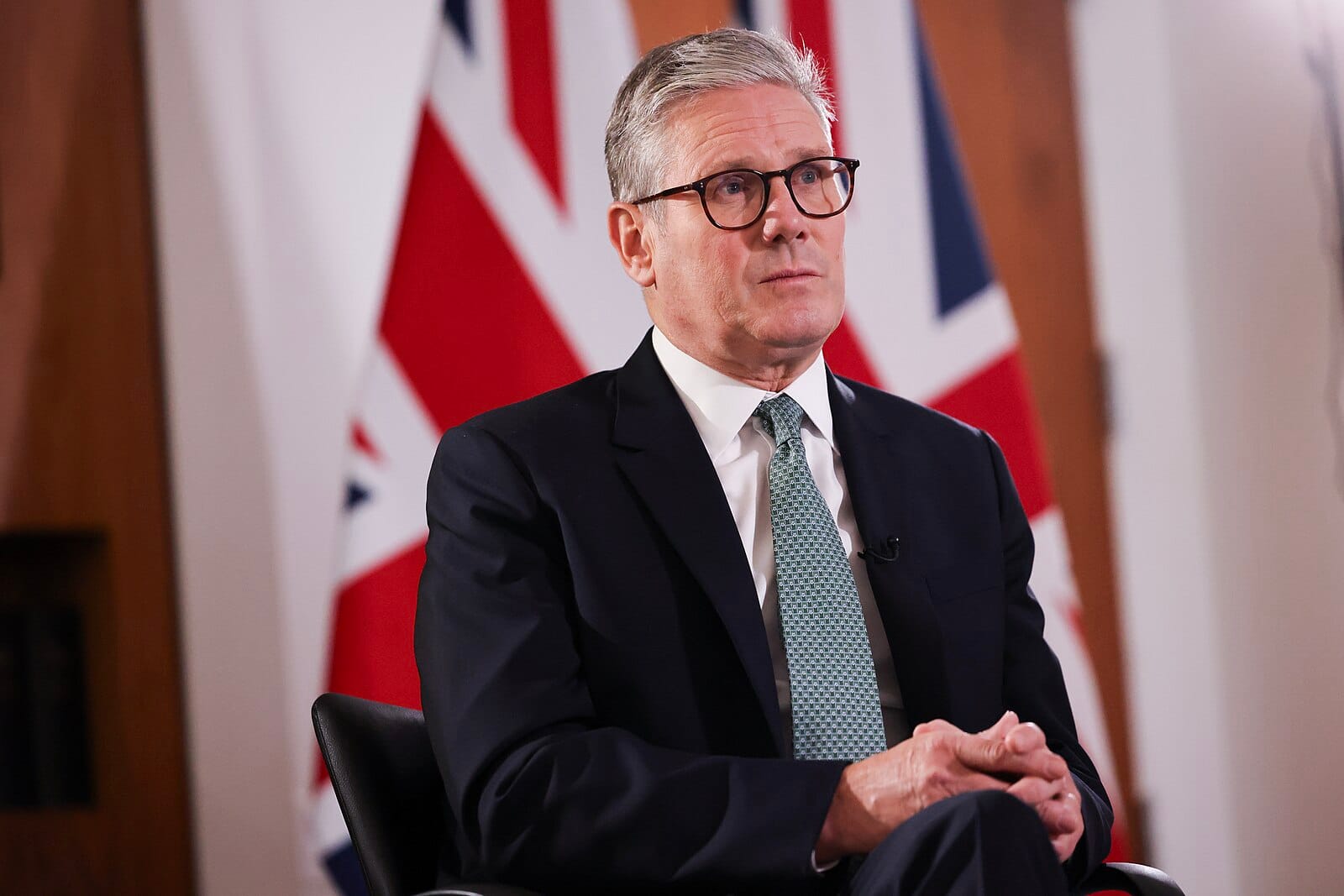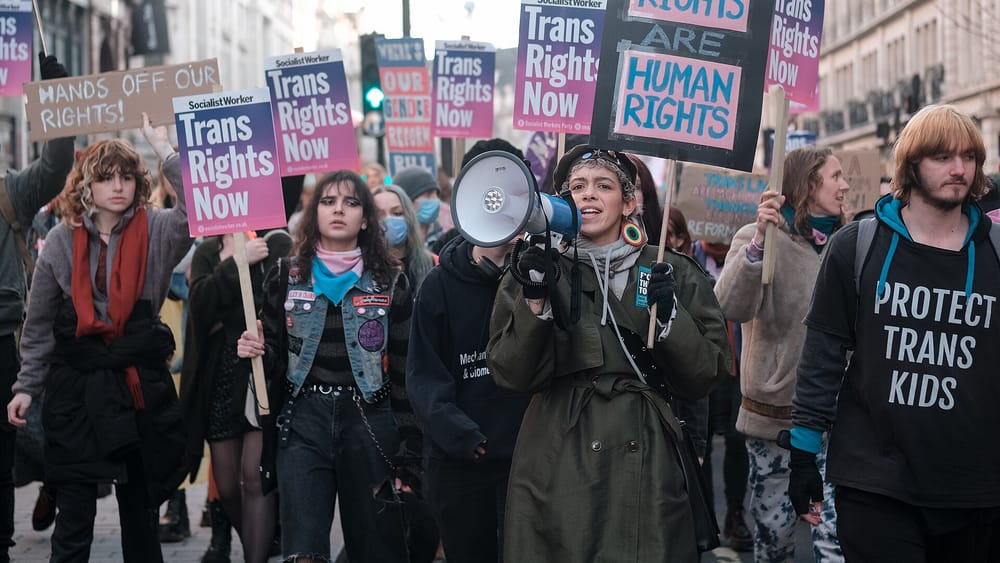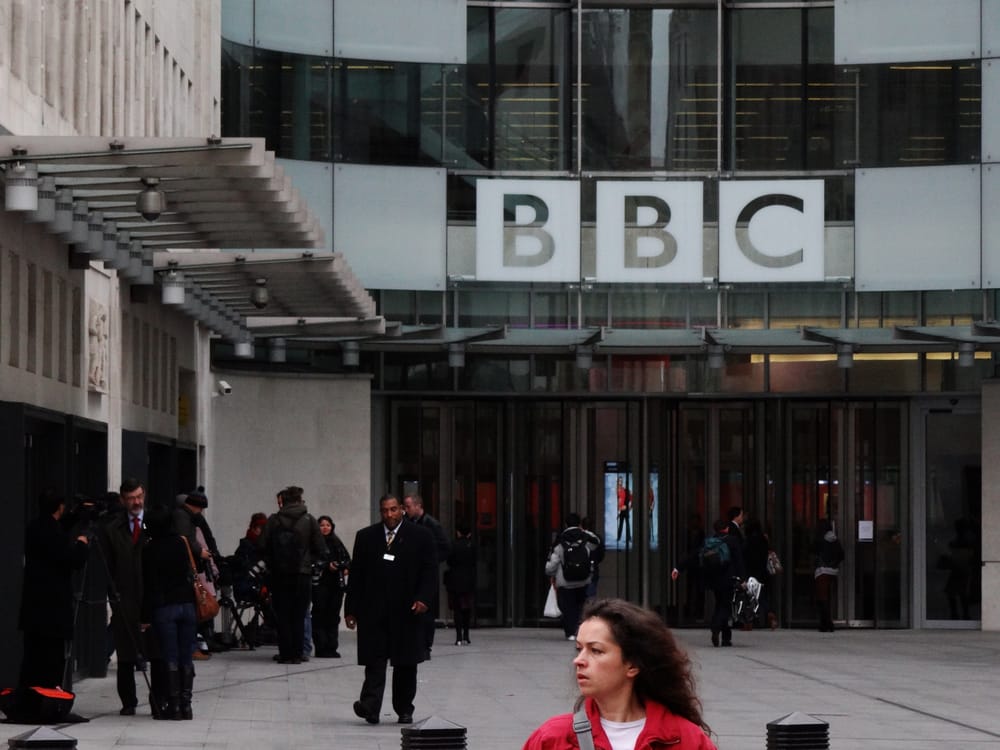On being un-British: safety through solidarity after the Manchester attack
Britishness will never protect us.

Few things have been consistent about Keir Starmer’s year in government. But amid constant personnel changes and backtracking on policy commitments, his ministers have proven remarkably steady in their dedication to two causes: carceral approaches to suppressing protest, and constant re-assertions of their patriotism. Confronted with historically low approval levels and an insurgent far-right Reform UK, Starmer’s government has repeatedly aped right-wing rhetoric. The government’s commitment to securitisation – the act of shifting political concerns into the realm of existential security threats – and its fervent, hollow displays of patriotism have grown increasingly desperate in the face of mounting political crises.
The most obvious example is perhaps Labour’s draconian response to the pro-Palestine protests over the past two years, which have jolted the party into entrenching law and order even more firmly. But the horrifying antisemitic attack in a Manchester synagogue on 2 October has kicked the government into a new gear. On 16 October, both Starmer and the Home Secretary, Shabana Mahmood, responded to the event by meeting with the Community Security Trust (CST), during which they presented a plan to protect Jewish Britons against “Islamist extremism”, including by giving the police sweeping new powers to restrict protest in order to “clamp down… on antisemitism”.
From the moment the news of the attack broke out, Mahmood pounced on the opportunity to reinstate both her patriotism and politics of securitisation. Within 24 hours, she took to Sky News to refer to the continued protests against Israel’s genocide in Gaza as “fundamentally un-British” and “dishonourable”. This line has aided the instrumentalisation of attacks against the Palestine solidarity movement: Starmer repeated the term when calling for students to refrain from protesting on the anniversary of the 7 October attacks, and Education Secretary Bridget Philipson has publicly accused student protestors of contravening British values when protesting for Palestine.
Civil liberty groups have responded to this opportunism with justified alarm: if implemented, many point out, the expansion of police powers will deal a devastating blow to any protest movement. Some activists have also noted the sinister implications of the government’s attempts to veil this crackdown in a response to antisemitism. As Em Hilton, co-founder of the Jewish Palestine solidarity movement Na’amod, has noted, not only does this conflate the British Jewish community with the Israeli government, it frames our community as in need of protection from a racialised coalition of “un-British” protestors who have spent the past two years challenging Israel’s genocide in Gaza. In reality, this is a movement that many of us have been committed to actively building.
This accusation feels grimly ironic when I contrast the government’s response to the Manchester attacks with the outpouring of solidarity that I – and many fellow Jewish activists – have received from partners in the Palestine solidarity movement over the past two weeks. My inbox, and the inboxes I manage for Na’amod, have been flooded with messages from fellow activists checking in, sending messages of care, affirming their solidarity and making clear that an attack on one of us is an attack on us all.
Because the weekly protests for Palestine enable us to interact meaningfully with a diverse coalition of activists who are committed to each other’s safety, they have become fertile ground for joint anti-racist organising across marginalised groups. Similarly, solidarity encampments on university campuses have led teach-ins about antisemitism, Islamophobia, and anti-Palestinian racism. Our joint commitment to practicing solidarity with Palestinians has enabled our communities to begin forging trust in each other's commitments to a joint anti-racist politics. This form of organising offers a very different model of resistance to antisemitism than the one the British government is enforcing: whereas the state sees antisemitism as an isolated form of racism that must be tackled by a security apparatus, our vision situates the fight against anti-Jewish hate within broader coalitions of racialised communities.
It comes as no surprise that Mahmood plans to give the police greater authority to shut down the protests that have made encounters between Jews and other marginalised groups possible. Besides being a gesture of alliance with the far right, which has pushed government to boldly assert their unequivocal patriotism, as well as an attempt to cover for the government's own complicity in genocide, the criminalisation of pro-Palestine protest is a mission to conflate the fight against antisemitism with the securitisation of the British state. It is the government’s promise to bring Jews into the fold of “Britishness”; to ensure that we benefit from the shoring up of a security apparatus that criminalises and polices those it considers “un-British”.
British Jews must not be fooled: a vision of “British-ness” that operates through a racialised suppression of civil liberties and divides us from the communities that stand alongside us in anti-racist struggle is one that we should have no interest in. Rather, it is one we must actively fight. The solidarity we have built in these protest movements, now threatened by the state, offers an alternative vision: one where we keep each other safe against the interweaving forms of racism that we face.
Developing this solidarity is particularly urgent in the current political climate, as the far-right is better organised than it has been in decades. Last summer, when race riots descended on communities across the country, it was through Palestine solidarity organising networks that responses were effectively mobilised in Finchley and Walthamstow. Over the next few years, we will need to be able to replicate that response, using the relationships and networks formed during the marches and in other sites and spaces of solidarity to engage in urgent political struggle.
Mainstream Jewish communal institutions have eagerly latched on to the false sense of security that this promise of “Britishness” offers. We owe it not only to our allies, but to ourselves, to reject it. The Labour government’s ongoing capitulation to the far right should convince us that we have nothing to gain from assimilating into Britishness. If we are to be kept safe, it will be by further developing these coalitions with our “un-British” allies, and reclaiming the “un-British” within ourselves.▼
Author
Max Hammer is a writer. He works as a human rights researcher and campaigner, and is a member of Na'amod.
Sign up for The Pickle and New, From Vashti.
Stay up to date with Vashti.



